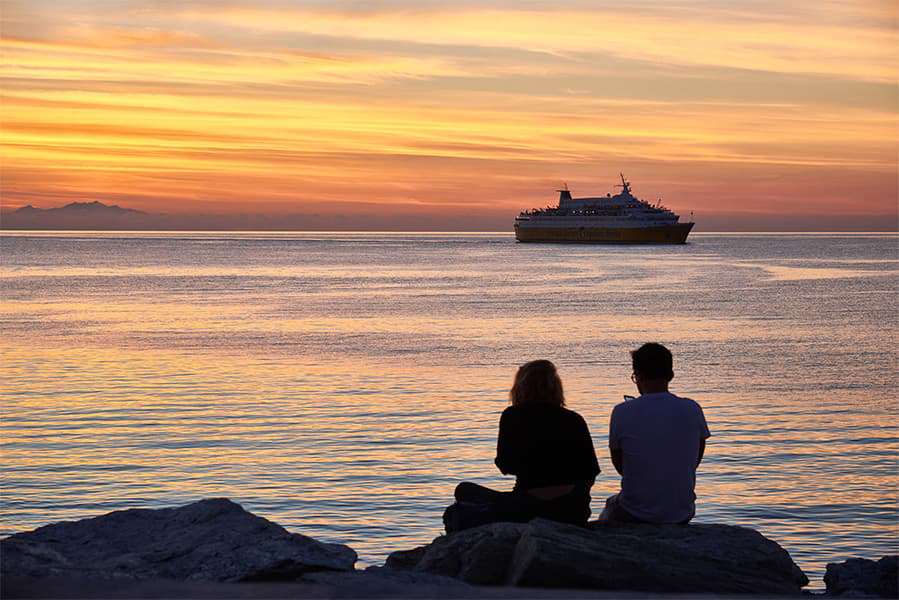Trelleborg - Sassnitz
Ferry to Germany
Trelleborg - Sassnitz
Ferry to Germany

Get the best deals on ferry crossings between Sweden and Germany on the Trelleborg to Sassnitz ferry route with Direct Ferries and compare alternatives where available too.
Using our Fare Search you can check real time prices, availability and book ferries from Trelleborg to Sassnitz or alternatively compare this route or the ports with other options.
Getting a quote or booking a ferry to Germany couldn't be easier. All you need to do is select Trelleborg to Sassnitz from the menus to the left, select the number of passengers and hit search!
More routes than anyone else.

Compare fares, times & routes in one place.
Change plans easily with flexi tickets.

Book e-tickets & manage trips in-app.
Live ship tracking & real-time updates.

Top-rated customer support when you need it.
Trelleborg is a city in Skåne in southernmost Sweden. Trelleborg has been populated for at least one thousand years. In the 10th century or earlier, a Trelleborg (ring fortress) was built by Danish Vikings. It was rediscovered in the 1990's, and rebuilt, and now it hosts activities every summer. The first written mention of Trelleborg, in the scarce Swedish medieval sources, is from 1257, when Trelleborg and the adjacent city Malmö where presented as a wedding gift from the Danish royal family to the Swedish Prince Valdemar. It was soon reconquered by the Danes and it belonged to Denmark until 1658, when the entire district Terra Scania was lost to Sweden in a war. In the medieval times, Trelleborg became an important merchant city as merchants from Germany came to trade herring. In April 1619, the Danish King decided that one merchant city on the coastal line was sufficient and revoked Trelleborg's status as a merchant city to favour Malmö.
Sassnitz is a town on the Jasmund peninsula, Rügen Island, in the Federal State of Mecklenburg-Western Pomerania, Germany. "To visit Ruegen means to visit Sassnitz", the writer Fontane told his Effie Briest. In fact, Sassnitz was the first seaside resort on Ruegen. The city has a 1,444 km. long harbour wall, the longest in Europe. It gives a certain air of permanency to the harbour, where passenger ships, sports boats and a small fishing fleet all dock. The city borders on the Jasmund National Park and its picturesque chalk coastline, the Koenigsstuhl. In addition to regular ferry traffic the volume of general and bulk cargo has increased continually over the past years. This is atrributable mainly to the favourable nautical conditions at the port, such as deep waters, no river journeys, no pilot or tug fees. Enhancing this the port has acquired the most modern transhipment equipment guaranteeing utmost effectiveness.